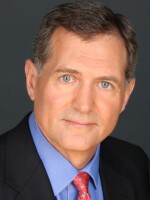DAVID GREENE, HOST:
NPR has been investigating the conditions that prisoners and guards face at the jail where Jeffrey Epstein died. The place is called the Metropolitan Correctional Center. It's a detention facility in Manhattan. This is where Epstein was being held on charges of sex trafficking before he was found dead in his cell on Saturday. The Department of Justice is now demanding an investigation. Attorney General William Barr spoke yesterday.
(SOUNDBITE OF ARCHIVED RECORDING)
WILLIAM BARR: I was appalled - and, indeed, the whole department was - and frankly angry to learn of the MCC's failure to adequately secure this prisoner. We are now learning of serious irregularities at this facility.
GREENE: All right. I want to bring in NPR national security correspondent Greg Myre, who's been looking into this facility. Hi there, Greg.
GREG MYRE, BYLINE: Hey, David.
GREENE: Serious irregularities, the attorney general says. Talk to me about what sort of reputation this place has.
MYRE: So this is a place you hear about when they have one of their high-profile figures that's held there before and then during a trial. Some of the big names would include the Mafia boss John Gotti, the financial fraudster Bernie Madoff, the drug lord Joaquin "El Chapo" Guzman and now Jeffrey Epstein being the latest.
GREENE: Presumably, security would be very tight at this place, given some of those names you're bringing up.
MYRE: Absolutely. And it's a 12-story building in Lower Manhattan. It's right next to the federal courthouse so they can move defendants back and forth between the courthouse. There's also the New York City police headquarters there. So a real center for law enforcement - the police, the courts, the jail - and I spoke with some of the people who work there.
GREENE: All right. Let's listen to your reporting here.
MYRE: Catherine Linaweaver was the warden at the Metropolitan Correctional Center, or MCC, back in 2013 and 2014.
CATHERINE LINAWEAVER: Throughout my time as warden there, we had a significant number of high-profile terrorists, such as Osama bin Laden's son-in-law and several others, come through.
MYRE: While those cases grabbed the headlines, they are the exception. Most of the nearly 800 suspects in the federal detention center can't meet bail or are too poor to afford an attorney. David Patton is the executive director of Federal Defenders of New York, which represents those who need a lawyer.
DAVID PATTON: You often hear in the media that the MCC is the place where they house the worst of the worst. But the vast majority of people there are accused of nonviolent drug and immigration offenses.
MYRE: Patton says his office represents several hundred of the men and women held there at any given time. The location - next to a federal courthouse - makes it convenient for lawyers to meet clients and to move defendants back and forth during trial. But space is always tight. The only outdoor recreation is on the roof under heavy fencing.
PATTON: Oftentimes, our clients have come to us from Rikers Island.
MYRE: Nearby Rikers Island is a New York City jail notorious for its rough conditions.
PATTON: When we first meet them, they'll ask us if there is any way they can go back to Rikers because as terrible as the conditions are there, it can be worse at the MCC.
MYRE: A typical defendant might spend six months to a year at MCC before his or her case is resolved. It can be a rocky stay.
PATTON: We have constant problems with our clients who have medical issues or mental health issues. They just don't have the sort of full-time staffing at the facility that's needed.
MYRE: Linaweaver, the former warden who worked at several federal prisons, says suicides tend to be most common during pretrial detention.
LINAWEAVER: There's a need to adjust to incarceration. Your whole life has changed. So during this period of adjustment that occurs at these pretrial facilities, you have a greater preponderance for suicide.
MYRE: She notes that the Bureau of Prisons ramped up staffing in the 1990s as incarceration rates soared and prisoners received longer sentences. Many of those staffers are now leaving as they hit the bureau's mandatory retirement age of 57. Eric Young, the national president of the union that represents correctional officers, says prisons now need to make thousands of additional hires. He says shortages are particularly acute in high-cost cities like New York, where it's extremely hard to recruit.
ERIC YOUNG: I could tell you - there are dozens and dozens of missing correctional officers at the MCC.
MYRE: The result, he says, is officers who are working extremely long shifts at understaffed facilities.
YOUNG: When you are working people 60-, 70-, 80-hour weeks, that is not normal for us.
GREENE: All right. We're back with NPR national security correspondent Greg Myre, whose reporting we were listening to there. Greg, the attorney general promising an investigation into what happened at the MCC - do you think that'll lead the changes?
MYRE: Boy, I really heard a lot of skepticism from Eric Young, the union official we just heard from. He said he raised these kind of concerns - staffing concerns a couple years ago when Joaquin "El Chapo" Guzman, the drug lord, was held there. They had to bring in additional officers from elsewhere. And he just hasn't seen the changes. David Patton, the defense lawyer you heard from, said he's done this 18 years. He also has - is very skeptical that the conditions will improve.
GREENE: NPR national security correspondent Greg Myre - thanks for your reporting, Greg.
MYRE: Thanks, David. Transcript provided by NPR, Copyright NPR.


